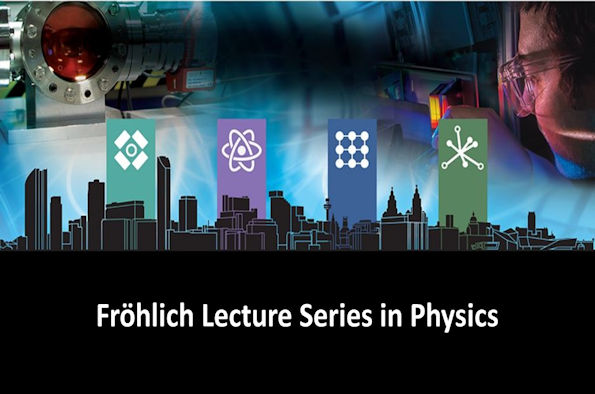
Fröhlich Lecture Series in Physics 2018/19 - Professor Carlos Frenk
- Professor Peter Weightman
- Admission: N/A
- Book now
Add this event to my calendar
Click on "Create a calendar file" and your browser will download a .ics file for this event.
Microsoft Outlook: Download the file, double-click it to open it in Outlook, then click on "Save & Close" to save it to your calendar. If that doesn't work go into Outlook, click on the File tab, then on Open & Export, then Open Calendar. Select your .ics file then click on "Save & Close".
Google Calendar: download the file, then go into your calendar. On the left where it says "Other calendars" click on the arrow icon and then click on Import calendar. Click on Browse and select the .ics file, then click on Import.
Apple Calendar: The file may open automatically with an option to save it to your calendar. If not, download the file, then you can either drag it to Calendar or import the file by going to File >Import > Import and choosing the .ics file.
Professor Carlos Frenk
Director of the Institute for Computational Cosmology
Durham University
Refreshments will be served at 13.45.
The Fröhlich Lectures are presentations by research leaders which are intended to be accessible to a general audience at the advanced undergraduate level.
A conclusive test of the existence of cold dark matter. The ``Lambda-cold-dark-matter'' (LCDM) cosmological model is one of the great achievements in Physics of the past thirty years. Theoretical predictions formulated in the 1980s turned out to agree remarkably well with measurements, performed decades later, of the galaxy distribution and the temperature structure of the microwave background radiation. Yet, these successes do not inform us directly about the nature of the dark matter. Indeed, there are competing (and extremely controversial) claims that the dark matter might have already been discovered, either through the annihilation of cold, or the decay of warm, dark matter particles. In astrophysics the identity of the dark matter manifests itself clearly in the properties of dwarf galaxies, such as the satellites of the Milky Way. I will discuss predictions from cosmological simulations assuming cold and warm (in the form of sterile neutrinos) dark matter and show how astronomical observations can conclusively distinguish between the two.
